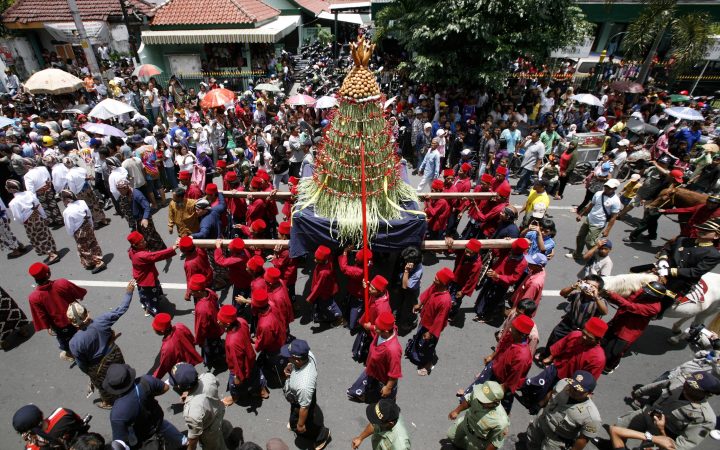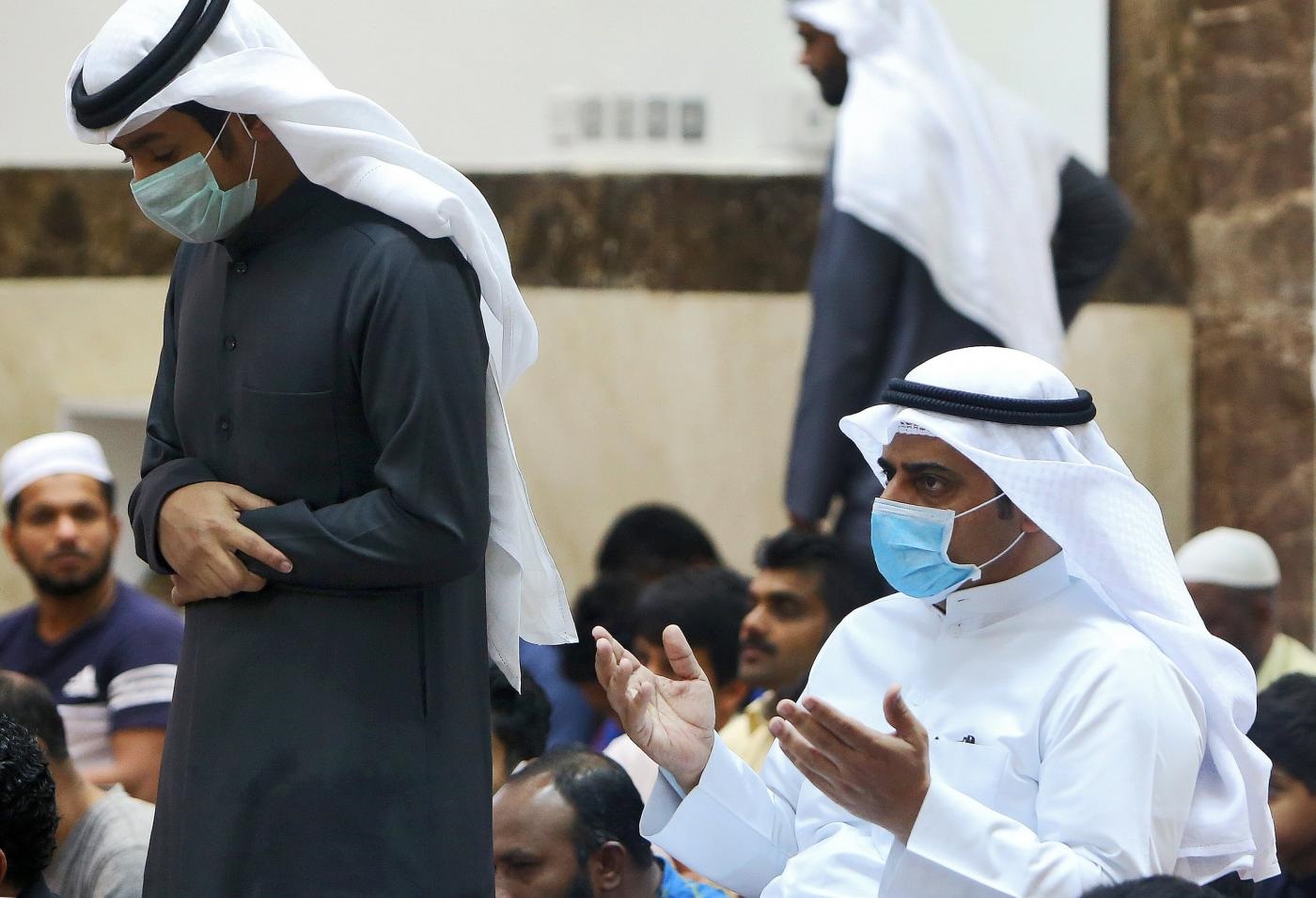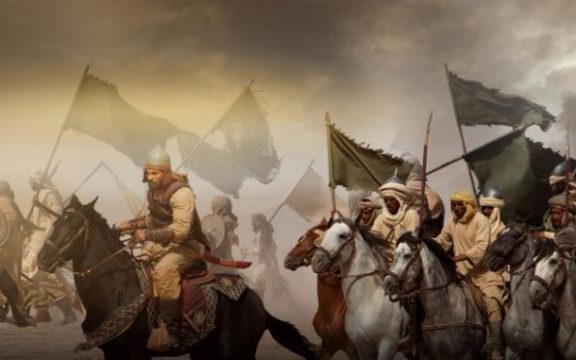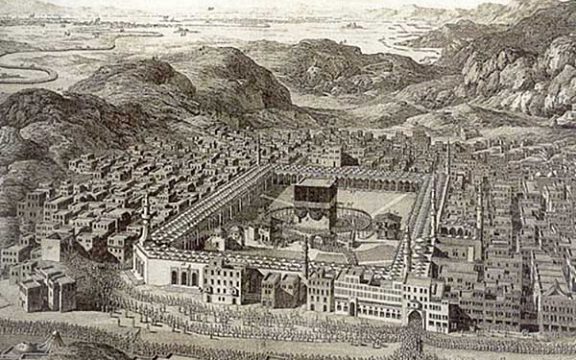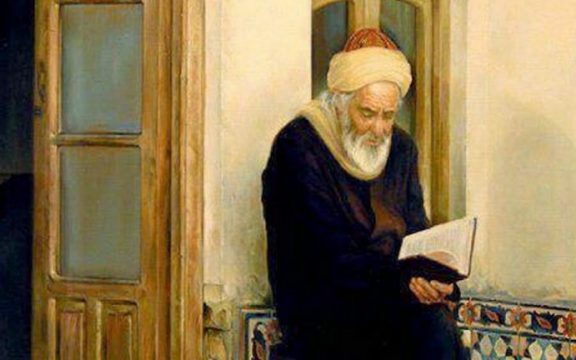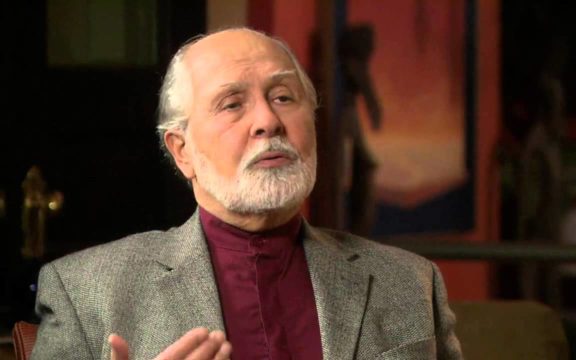The prophet Muhammad is the most deeply revered by Muslims in Islamic tradition. His name alone, Muhammad, means the praised one. An uncommon name during his time. His teachings, instructions and daily actions are inspirations to Islamic law after the Holy Quran. Every time his name was heard and spoken, Muslims will seek blessings and pray for him. Thus, it makes his name as the praised one.
Muslims celebrate his name in glorious ways through songs and poetry; mentioning him as the sun and the moon, the light above all light, the light of the soul, and many more as recorded by many classic narratives. Various Muslim scholars have written His chronicle of life in many books, mostly are in prose and poetry, to celebrate the greatness, cherish the joy of his presence to this earthly world.
To mention some of the prose and chronicles of the Prophet’s life; Mawlid Diba’i by Imam Ad-Diba’i, Mawlid al-Barzanji by Ja’far ibn Hasan al-Barzanji, and among the popular is Mawlid Simt Durar, by Habib Ali b Muhammad al-Habsyi from Hadramaut, Yemen. Meanwhile Qasidah Burdah was written in rhymes more poetic style. The writers decorated their books under beautiful names such as: necklaces of jewels, or string of pearl. Probably to put sense of glorifying to dedicate their works to the prophet Muhammad.
For majority of Muslims, it is almost impossible to find a mawlid celebration in a quiet, silent atmosphere. To celebrate Mawlid means a feast for people, all-in. immersing spirituality to the sea of praise by singing along, sometimes with dance. There will be sweets, music, all cherish the birthday of the prophet with joy and pride. Those Muslims are who hold a “party” in celebrating Mawlid.
It is quite difficult to put the exact origin of Mawlid celebration. According to Muhammad in History, Thought, and Culture: An Encyclopedia of the Prophet of God, the significance of the event was established when Muhammad fasted on Monday, citing the reason for this was his birth on that day. As a commemoration celebrated by Muslims, we might trace celebration of Mawlid back to Fatimid caliphate in Egypt around 10th century.
Among the proponents, Mawlid was justified by some verses in the Quran. One of the verses said: “Indeed, Allah and His angels shower blessings on the Prophet. O you who believe! Ask blessings on him and salute him with a worthy salutation (Qu’ran 33:56).”
Sufism and Islamic traditional teaching also color the idea of Mawlid celebration. The narratives are coming from idea of mystics who believe that the light of Muhammad is the reason of universe existence. Even before Allah created Adam, the light of Muhammad has been there. Proponents of this narrative concludes that celebrating Mawlid means celebrating tawhid (oneness) of Allah as well, since many literature showing the favor of Allah to Muhammad before the universe.
Many Muslims celebrate Mawlid across the earth. From Africa, to Arab peninsula, Turkey, Pakistan, to the corner of Southeast Asia, they have similar celebration of Mawlid in common. In Turkey, Mawlid (Turkish: Mevlud Kandili) is celebrated as a public holiday and traditional poems regarding Muhammad’s life are recited both in public mosques and at home on the evening. Often organized in some countries by the Sufi orders.
In Java Indonesia, we acknowledge the celebration of Sekaten, derived from term Shahadatain, meaning the two shahada, the first pillar of Islam, as well the creed and declaration when someone embracing Islam. The celebration is held by Sultanate of Yogyakarta, with a week-long recitation of the history of Muhammad and night market fair for people in the palace square.
Mawlid is mainly accepted by Sunni and Shia schools. Despite majority of Muslim acknowledge and celebrate Mawlid, the emergence of Wahhabism and Salafism challenge the Mawlid by accusing the commemoration of the Prophet as illicit religious innovation (bid’ah). They argue that Islamic teaching has already been perfect in Quran and Sunnah (prophetic traditions). Thus, any new practice, or ritual addition to the faith is considered bid’ah and therefore must be rejected. For the anti-party group, therefore Mawlid is a bid’ah and unacceptable since the Quran does not command Muslims to celebtrate Mawlid and Sunnah does not command to do so.
But for me, it is important to celebrate Mawlid. As the proponent of Mawlid celebration, I don’t see the commemoration violates the faith or even under category of bid’ah. The idea is quite simple. Muslims have their religion Islam, and they also have their culture. We celebrate marriages, we celebrate national days, independence days, and we celebrate the victories of our football team. We celebrate our achievements and even our own birthday without bothering to debate if it’s violating faith. Then why not we celebrate the life of the man who is dearest to us?
![Islami[dot]co](https://en.islami.co/wp-content/themes/jambualas/images/logo.png)
